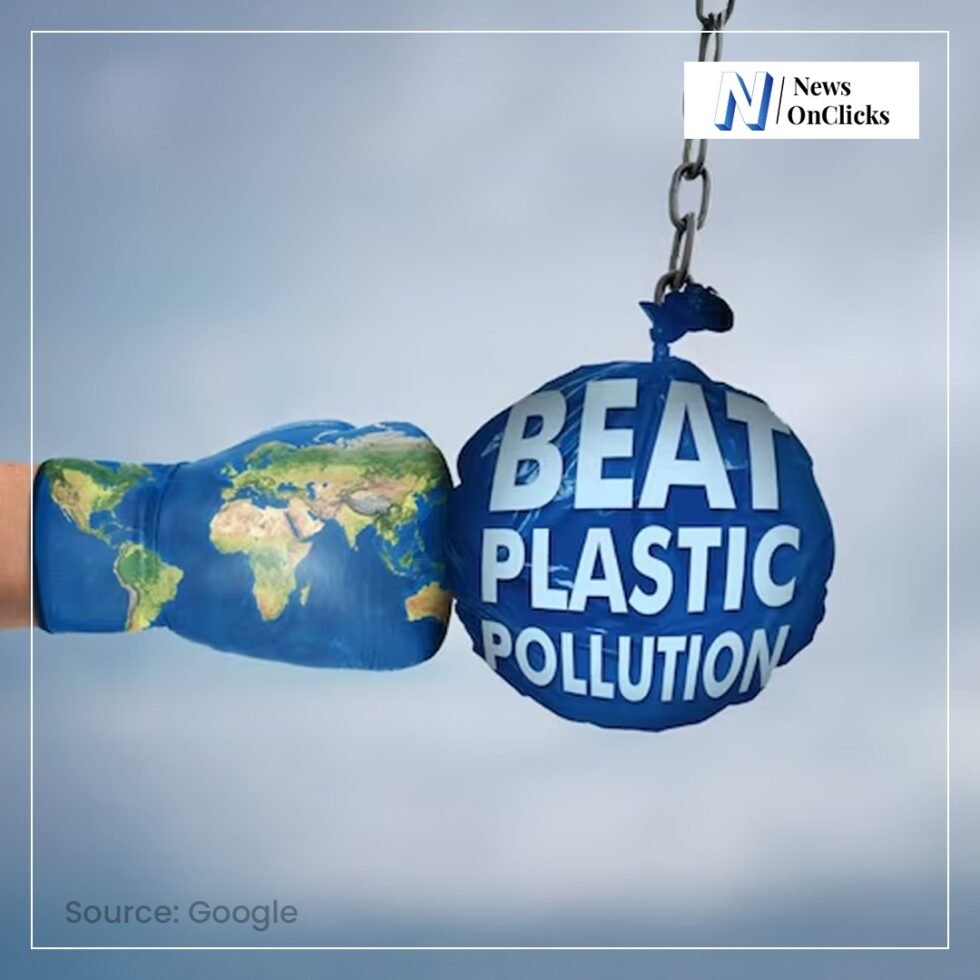
World Environment Day 2025 is more than a calendar observance; it’s a powerful reminder that the health of our planet depends on us all. Held annually on June 5, this year’s celebration brings the world together around the urgent and timely theme: “Beat Plastic Pollution.”
With plastic invading every aspect of life on Earth—from oceans and wildlife to the food we eat and the air we breathe—this campaign calls for immediate and meaningful action. In 2025, the official host country for World Environment Day is the Republic of Korea, known for its innovation in environmental technologies and sustainable practices.
What is World Environment Day and Why is it Celebrated?
World Environment Day was first observed in 1973, following the 1972 Stockholm Conference on the Human Environment—the first major gathering to discuss environmental challenges on a global scale. Since then, June 5 has evolved into the world’s largest platform for environmental outreach, coordinated by the United Nations Environment Programme (UNEP).
Every year, a different host country leads the celebrations, and a new theme highlights a critical environmental issue. The goal is clear: to inspire action at every level—from individuals and communities to businesses and governments.
Theme of World Environment Day 2025: Beat Plastic Pollution
The theme for 2025, “Beat Plastic Pollution,” highlights the growing crisis caused by the unchecked production and disposal of plastic products, especially single-use items.
According to UNEP, over 430 million tonnes of plastic are produced annually. Shockingly, almost two-thirds of this is designed for single use and ends up clogging landfills, rivers, and oceans. Even more alarming, plastic breaks down into microplastics, tiny fragments that have now been found in human blood, lungs, and even breast milk.
This year’s campaign urges global citizens, industries, and policymakers to take action by:
- Reducing reliance on single-use plastics
- Supporting biodegradable and circular alternatives
- Investing in sustainable packaging
- Enforcing strong plastic regulation policies
2025 Host Country: Republic of Korea
The Republic of Korea serves as the global host for World Environment Day 2025. The country has made significant progress in the fields of recycling, environmental innovation, and green technology.
With successful initiatives such as nationwide bans on plastic bags in major retailers, high-tech recycling systems, and public awareness programs, Korea stands as a model for countries aiming to shift toward more sustainable systems.
By hosting this year’s event, the Republic of Korea aims to highlight actionable solutions, promote global cooperation, and inspire other nations to scale up their commitment to reducing plastic pollution.
Why Plastic Pollution Is a Global Crisis?
Plastic pollution affects every corner of our planet and poses threats that go far beyond aesthetic or environmental concerns. Here’s why addressing it is critical:
- Environmental Damage: Plastic waste chokes rivers, oceans, and ecosystems. Wildlife often mistake plastic for food, which can lead to fatal consequences.
- Human Health Risks: Microplastics have been found in drinking water, food chains, and human tissues. Studies link long-term exposure to hormonal imbalance, cancer, and immune disorders.
- Economic Losses: Coastal communities, fisheries, and tourism industries lose billions annually due to plastic-related pollution.
Poster Ideas and Awareness Campaign Concepts
If you’re planning a school competition, community activity, or online awareness campaign, here are some compelling poster ideas and taglines you can use to amplify the 2025 message.
1. Plastic-Free Planet Starts with Me
Visual: A globe wrapped in plastic film, being cut open with a cloth bag
Tagline: Say no to plastic. Say yes to Earth
2. Microplastics Are Inside You Too
Visual: A human silhouette filled with microplastic particles
Tagline: Beat plastic pollution before it beats us
3. One Earth, One Chance
Visual: One half of Earth green and clean, the other half covered in plastic waste
Tagline: Act now to save our only home
4. Every Drop Counts, Every Bit Hurts
Visual: A single drop of water containing plastic waste and dead coral
Tagline: Protect oceans. Reject plastics
These posters can be displayed in schools, offices, eco-clubs, and social media platforms to raise awareness and inspire behavior change.
How People Around the World Can Participate?
Whether you’re a student, business owner, educator, artist, or policymaker, there are many meaningful ways to participate in World Environment Day 2025:
- Organize or join a local clean-up drive
- Switch to reusable products and avoid plastic packaging
- Host awareness campaigns, seminars, or competitions
- Promote sustainable brands and support eco-friendly businesses
- Share educational content on social media using #BeatPlasticPollution and #WorldEnvironmentDay2025
Every small action adds up. When individuals, schools, organizations, and cities commit to change, the collective impact can be monumental.
The History Behind World Environment Day
The roots of World Environment Day trace back to 1972 when the global community first gathered to acknowledge the environment as a shared global responsibility. Since then, it has grown into a movement that reaches over 150 countries each year.
Past themes have addressed urgent concerns like biodiversity loss, air pollution, desertification, and ecosystem restoration. From planting billions of trees to influencing plastic bans and green policies, this day has inspired impactful change across the world.
Why This Year Matters More Than Ever?
As our planet faces compounding threats—climate change, deforestation, mass extinction, and pollution—World Environment Day 2025 serves as a clear and powerful call to action. This is not just about raising awareness; it’s about turning knowledge into action.
With over 19 to 23 million tonnes of plastic entering aquatic ecosystems every year, the time to act is now. Every purchase decision, every regulation passed, and every clean-up campaign contributes to the global push to eliminate plastic pollution.
Conclusion: A Collective Responsibility
The fight against plastic pollution is not limited to governments or environmental organizations. It begins in our homes, schools, and communities. World Environment Day 2025 reminds us that real change starts with each of us—and that the health of our planet is directly linked to the actions we take every single day.
Let this day be a turning point, not a one-day event. Let it be the spark that ignites year-round responsibility and environmental stewardship. Because when we protect the Earth, we are ultimately protecting ourselves.









